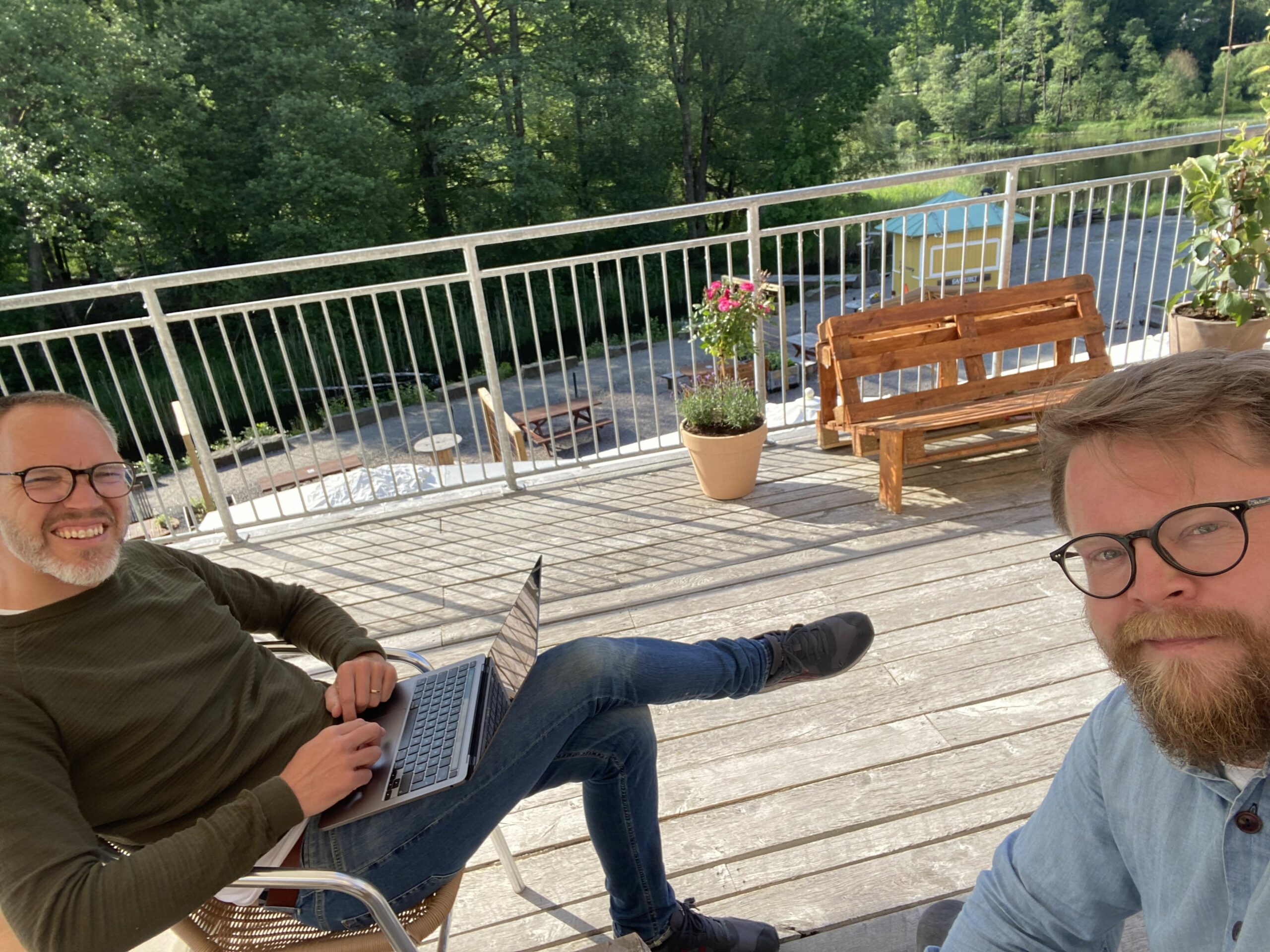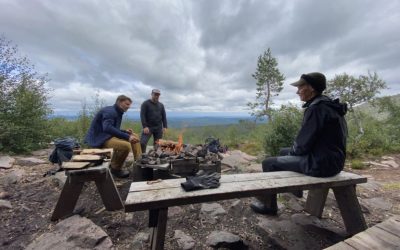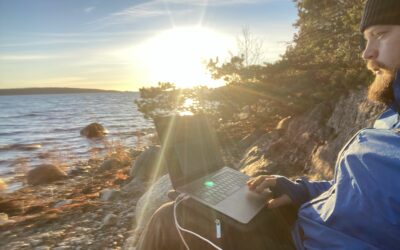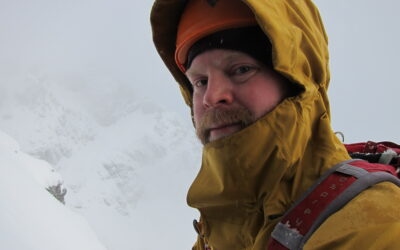I believe I’ve spent most of my life in nature—first as a scout, then as a young adult guide in the Swedish mountains, and later seeking solace in nature during personal crises.
Despite this inclination, I’ve spent the last 15 years working indoors in offices and conference centers for organizations ranging from small IT firms to large international companies, always with HR as my focus in various roles—from manager to consultant. When my youngest son asks what I do at work, I tell him I help people collaborate. In practice, this means advising CEOs and managers, supporting leadership teams and other groups, and working on long-term initiatives such as change management and training programs.
In the spring of 2021, when most people switched from office desks to kitchen tables due to the pandemic, I did the opposite. Together with several entrepreneurs, we created CoCreate—a community for entrepreneurs where meetings led to exciting insights. We had all left demanding jobs and started discussing what sustainable work really means.
I love reading and began searching for literature on the topic. There isn’t much research specifically labeled “sustainable work life,” but interesting studies are hidden in other fields, and my library has grown over the years. The more you learn, the more you realize how much you don’t know. Instead of returning to academia, I began compiling the material I had, writing, and interviewing CEOs, managers, and HR professionals in small and medium-sized companies in Western Sweden.
Some responded with questions about what a sustainable work life means to me, while others said it’s a topic that needs more discussion within their organizations. Everyone acknowledged some discomfort in their workplaces—be it insufficient resources, workload, personnel policies, or personal work-life balance issues.
I can’t give you a definitive answer on what a sustainable work life is, but I want to look to the future. To do that, we need to look back at what brought us here. During Sweden’s industrialization in the 1800s, our lives split into public and private spheres. We became disconnected from nature, and our work lives evolved significantly since then.
Today, there is talk of increased change velocity and complexity. We trust digital tools, and many jobs may soon be replaced by AI. The average office worker in Sweden spends about 45% of their time coordinating work through meetings, conversations, and emails, leaving just over half their time for productive tasks. Teams often work independently in hybrid environments, collaborating 50% more than 20 years ago, leading to “Collaboration Overload.”
According to Amy Edmonson, leadership is increasingly replaced by self-leadership, where employees must prioritize and maintain direction while managing cognitive resources and complex tasks—a challenging equation. From 2014 to 2024, stress-related sick leaves in Sweden increased by 120%, with nature often prescribed as a remedy. Studies show nature positively impacts recovery from stress-related conditions.
Nature’s influence extends beyond health to popular culture, real estate ads, and advertising. Nature experiences are a lifestyle, with 95% of Swedes believing in nature’s positive value. Psychiatrists like Nils Uddenberg have found that nature provides a sense of connection and strength, while cities are sources of stress and competition.
Researchers like Arianne J. van der Wal and Meredith S. Berry have shown that nature experiences reduce impulsivity and delay discounting—the tendency to value immediate rewards over larger future rewards. CEOs and managers who spend time in nature make wiser, long-term decisions and feel better physically and mentally. The environment influences our behaviors and interactions, as David Thurfjell discusses in his book “Granskogsfolk.”
I believe there is a connection between sustainable work life and nature. Organizations that integrate nature will manage change and complexity more effectively, making long-term decisions beneficial for employees and the planet. They may redefine success and find new dimensions in a sustainable work life connected to nature.










